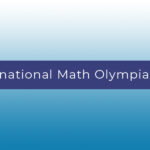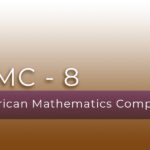International Mathematical Olympiad – IMO 1983 Problems
Problem 1
Find all functions $f$ defined on the set of positive reals which take positive real values and satisfy: $f(xf(y))=yf(x)$ for all $x,y$; and $f(x)\to0$ as $x\to\infty$.
Problem 2
Let $A$ be one of the two distinct points of intersection of two unequal coplanar circles $C_1$ and $C_2$ with centers $O_1$ and $O_2$ respectively. One of the common tangents to the circles touches $C_1$ at $P_1$ and $C_2$ at $P_2$, while the other touches $C_1$ at $Q_1$ and $C_2$ at $Q_2$. Let $M_1$ be the midpoint of $P_1Q_1$ and $M_2$ the midpoint of $P_2Q_2$. Prove that $\angle O_1AO_2=\angle M_1AM_2$.
Problem 3
Let $a,b$ and $c$ be positive integers, no two of which have a common divisor greater than $1$. Show that $2abc-ab-bc-ca$ is the largest integer which cannot be expressed in the form $xbc+yca+zab$, where $x,y,z$ are non-negative integers.
Problem 4
Let $ABC$ be an equilateral triangle and $\mathcal{E}$ the set of all points contained in the three segments $AB$, $BC$, and $CA$ (including $A$, $B$, and $C$). Determine whether, for every partition of $\mathcal{E}$ into two disjoint subsets, at least one of the two subsets contains the vertices of a right-angled triangle.
Problem 5
Is it possible to choose $1983$ distinct positive integers, all less than or equal to $10^5$, no three of which are consecutive terms of an arithmetic progression?
Problem 6
Let $a$, $b$ and $c$ be the lengths of the sides of a triangle. Prove that\[a^{2}b(a – b) + b^{2}c(b – c) + c^{2}a(c – a)\ge 0.\]Determine when equality occurs.




